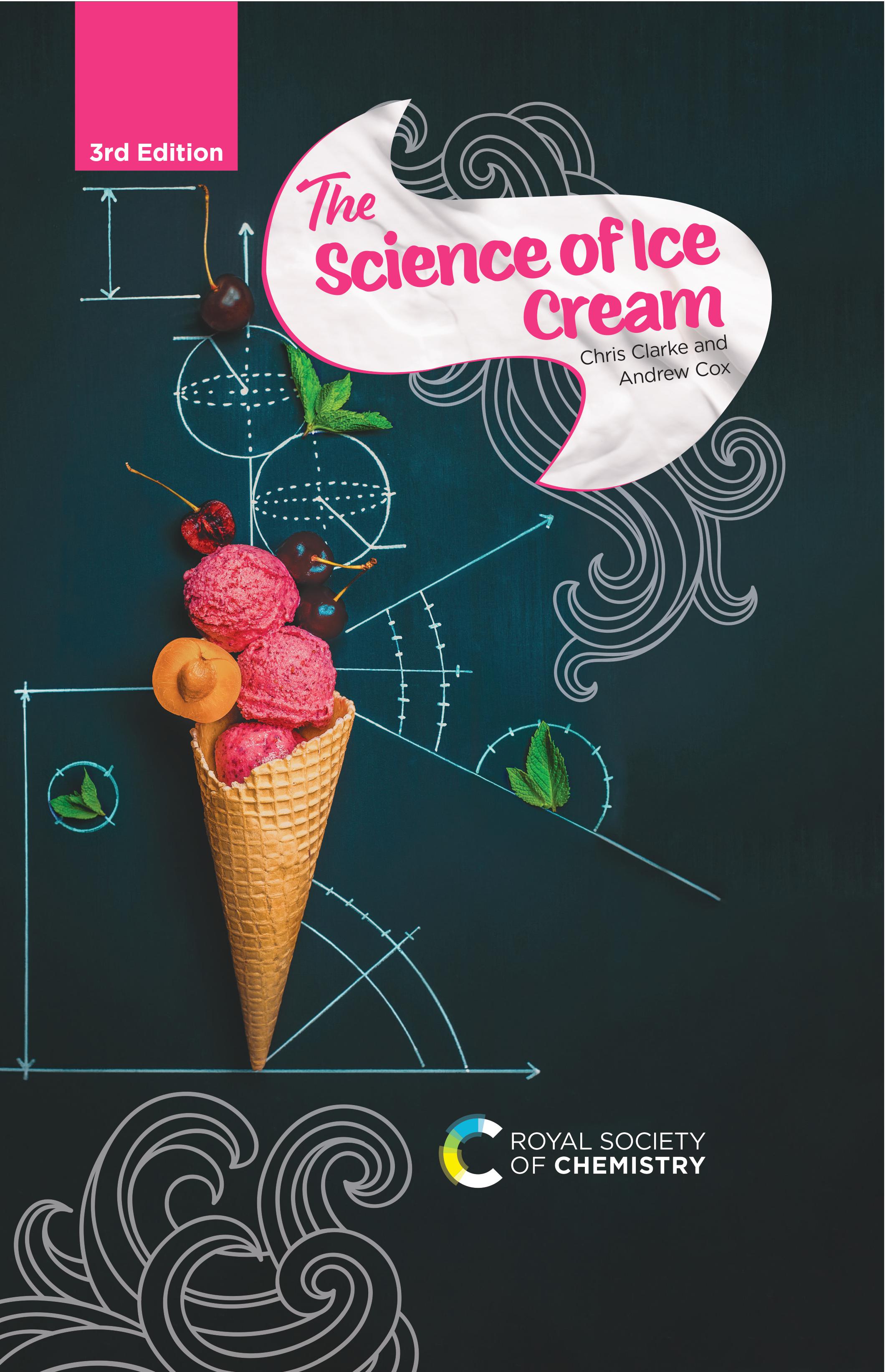Updated book gives readers everything they need to know about ice cream science in one fell scoop

A popular ice cream-themed book is back with a new edition giving readers the scoop on the science behind one of the world's favourite tasty treats.
The Science of Ice Cream returns for a third helping, with a series of practical experiments helping fascinated foodies to prepare their own frozen favourites at home.
With this new edition coming nearly 20 years after the first, updates have been sprinkled into the newly published book to incorporate the latest scientific developments.
Revisions inspired by innovative industry techniques and interesting new ingredients also give readers a flavour of the ongoing work being carried out by scientists in the ice cream industry designed to ensure consumers enjoy the tastiest experiences.
Fresh material on health-conscious changes and the rise of plant-based alternatives is the cherry that tops the sundae as authors Chris Clarke and Andrew Cox delve deep into the science.
For Clarke, who joined Unilever as an ice cream research scientist in 1999, the opportunity to soft-serve more interesting insights in the latest edition allowed him to reconnect with his loves of science and ice cream.
"It's amazing, I'm just delighted that people still want to keep reading it," said Clarke, who now works as a patent attorney. "It's been really nice actually going back and visiting an area of science that I used to work in and then moved away from. Just coming back to it again and reminding myself of some of the stuff that I've sort of forgotten about.
"It was actually quite good fun but also a bit scary that it's 20 years since I first wrote some of it, even though most of it was and is absolutely still relevant.
"I know that Unilever people use it quite a lot in their ice cream research group, so having a chance to update it a little bit in a few places was great. We then added a whole new section, which is really where Andrew made the biggest contribution around non-dairy ice creams and plant-based ice creams, that's been a lot of the focus of research in more recent years."

For this third edition, Clarke asked his former colleague to get the inside scoop on what's going on in the world of mass-produced ice cream.
Cox was happy to oblige and contribute to a book he described as part of the ice cream science literature. He added that the earlier editions are still used frequently at Unilever's Colworth research and development hub while new elements have been added based on his own experience.
"Many of the fundamentals of ice cream technology are the same but the marketplace moves on, the technology moves on, consumers move on so I felt I could bring some of that to the book," he explained.
Of non-dairy and vegan options, he added: "They've also improved a lot over the last eight to 10 years. People have invested in it because consumers want it either for their own dietary reasons or environmental ones and so on.
"There is clearly a growing role for that kind of ice cream in the marketplace, but ultimately it happens by making better quality as well. The market segment has grown and the technology and capability have grown with it to feed that demand, so I think that is a great example where I just think there's a lot of change."
While he might have been out of ice cream science for a while, Clarke is no stranger to ingenuity in the field. He has previously sat on a judging panel with celebrity chef Heston Blumenthal, and has tried plenty of weird and wonderful flavours, such as brown bread and the bold combination of banana, parmesan cheese and garlic - even though his favourite classic flavour is raspberry ripple.
Even he has been surprised by some of the changes in the industry over the past 10 years, but he fully expects more innovation over the next decade as the world continues to change, pointing to different ways of producing chocolate for ice cream due to climate change.
"I hadn't really appreciated how far things have gone with the plant-based ice creams," he added. "Soya-based ice creams have been around for a while, but using protein from peas, I didn't realise that was being done."

He also points to the moves towards cardboard packaging and his former employer Unilever changing the temperature of their freezers from -18°C to -12°C as a sign of how sustainability considerations are affecting the present and the future of ice cream science.
As for the future of the book, both are curious to see where it goes.
Clarke said of his co-author: "I'm lucky that I've known Andrew for a long time, and he was the obvious person to ask. If it was going to be anybody, it was a no-brainer to ask him, so I was absolutely delighted when he was happy to be involved because I think I would have struggled to find someone who could do the same thing.
"It's nice that the book has been updated - maybe there'll be a fourth edition in another 10 years' time and maybe at that point he or somebody else will write more for it."
And Cox added: "Let's be clear, ice cream in 10 years' time won't be the same as today - it will continue to move forward.
"If we said 'right, we create a new version' tomorrow, I can think of things that we might start to bring to it, both in terms of where the market's going but the underlying technology, too, so I'm sure this book will warrant an update in due course because there will be things to talk about.
"If Chris wants a little bit of help, I'm sure I can put my hand up."
- Buy the third edition of The Science of Ice Cream from our books website now.